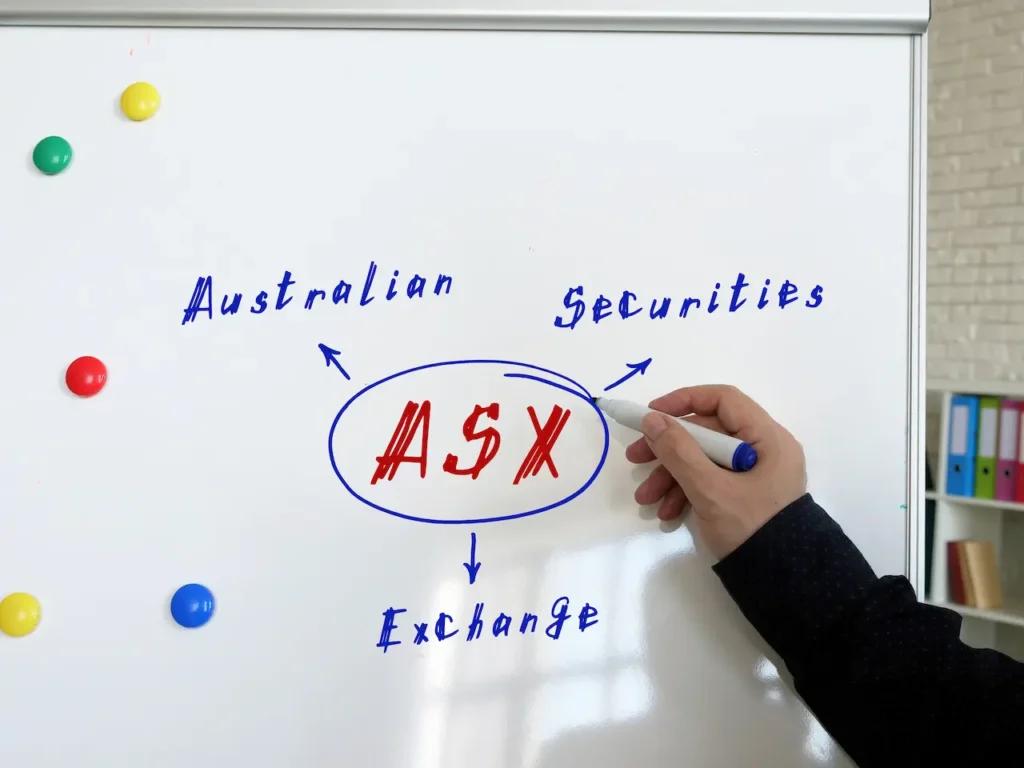ASX Suffers Worst Week in a Year
ASX Suffers Worst Week in a Year: What’s Behind the Slump?
This week, the Australian Stock Exchange (ASX) suffered its worst performance in a year, leaving investors puzzled about what caused the sharp downturn. According to financial expert Remo Greco, the explanation lies in a combination of seasonal market factors and specific global events affecting Australia’s largest trading partner, China.
Markets are often subject to slowdowns during the Northern Hemisphere summer, with fewer participants and lower trading volumes. This seasonal phenomenon, known as the “summer doldrums,” typically leads to lower market performance. However, this year’s drop follows a period of strong growth, making the fall appear more dramatic.

Why Is China’s Struggle Impacting Us?
One of the key factors affecting the ASX’s downturn is the ongoing economic struggles in China. After the global pandemic, many countries, especially in the Northern Hemisphere, bounced back quickly, but China has lagged in its recovery. This has direct consequences for Australia, which is highly exposed to global markets, particularly through its trade with China.
The Australian dollar has seen a significant dip, falling from $0.69 to $0.64 in just four weeks, reflecting a wobbling relationship with China. The weaker currency impacts the Australian market, especially when it comes to iron ore prices. Australia’s iron ore, a major export, has dropped to a nine-month low, contributing to the slump in share prices.
The Double Whammy for Overseas Investors
For international investors holding Australian assets, the recent downturn in both the stock market and the Australian dollar means they are facing a “double whack.” If they’re seeing declines in both their currency holdings and shares, the losses are amplified. This has led to a shift in sentiment, with foreign investors retreating from Australian markets.
Impact on the Australian Market and What Investors Can Do
As a diversified investor in the Australian market, this drop in major stocks like BHP, which makes up 10% of the ASX, can hurt the broader market. However, Greco suggests that investors need to remain calm and not get caught up in short-term fluctuations. The key to navigating this phase is understanding that the global economy’s complexities, particularly the situation in China, are at play.
For those invested in Australia’s large exporters, such as BHP, it’s essential to be aware of these external influences. But rather than making knee-jerk reactions, investors are advised to maintain a long-term view of their portfolios.
The RBA’s Battle Against Inflation
Meanwhile, the Reserve Bank of Australia (RBA) is continuing its fight against inflation, which has led to interest rate hikes over the past 13 months. Outgoing RBA Governor Philip Lowe recently indicated that the economy is entering a “calibration phase,” where the central bank will take a pause to assess the effectiveness of its monetary policy.
Understanding the “Calibration Phase”
According to Remo Greco, the calibration phase is about adjusting the policy after a period of aggressive interest rate hikes. The RBA’s goal is to bring inflation under control without causing too much economic disruption. Lowe’s approach focuses on the belief that inflation will continue to decrease over the next few years, though concerns persist, especially regarding persistent inflation in services.

The Balancing Act of Interest Rates and Inflation
While interest rate hikes have been the primary tool for curbing inflation, there are other factors at play. For example, a weaker Australian dollar could exacerbate inflation by making imported goods more expensive. This could lead to further complications for the RBA, as it tries to manage inflation without stifling economic growth.
The issue is further complicated by the increase in savings during the pandemic. Many Australians, particularly those in retirement or with significant savings, have benefited from higher interest rates. This has kept consumer spending strong, making it difficult for the RBA to slow the economy down using interest rates alone.
The Road Ahead for Investors
For individual investors, these complex economic factors mean there’s no one-size-fits-all approach. Remo Greco advises staying informed about the broader market conditions and being cautious of short-term noise. He also stresses the importance of having a strategy in place, particularly when it comes to superannuation and other long-term investments.
The Australian Dollar and Its Role
Another listener question raised concerns about the Australian dollar’s relative weakness, especially given the strength of Australia’s economy compared to Europe and the United States. Remo explains that a weaker Australian dollar is actually beneficial for the country’s exporters. The lower dollar means that Australian products, such as iron ore and agricultural goods, are more competitive on the global market.
Superannuation and Financial Planning
For listeners concerned about their superannuation, particularly those in mid-life stages like a single mother with limited super savings, Remo emphasizes the importance of seeking financial advice. He highlights that despite the challenges, continuing to invest in superannuation remains one of the best long-term financial strategies for most Australians.
The Changing Landscape of Commercial Property
Finally, commercial property is facing a significant downturn, driven largely by the rise of remote work and vacancies in office spaces. This has created a challenging environment for investors in property trusts, as vacancy rates rise and rents fall. For those involved in commercial property, it’s important to be aware of the shifting market and consider how these changes could impact your investments.
Property Trusts and Gating: In the U.S., investors are facing a situation where large property trusts have “gated” their assets, meaning investors can’t easily access their money. This is a serious problem, particularly for those relying on these funds for retirement or other financial needs.

- Investment Advice for Older Individuals: Gertrude, at the age of 70, wonders if she should cash in her stable shares or hold onto them. The general advice is to stick with them if they are long-term stable investments unless there’s a pressing need for the funds.
- Contributing to Superannuation After 70: Chrissie, at 72, asks if it’s too late to contribute to her superannuation. The advice is that it’s generally fine, but seeking specific guidance is recommended.
- Mortgage Offsets vs. ETFs for Young Investors: A 24-year-old with two Airbnb properties asks if they should invest their savings in offset accounts for their mortgages or in ETFs. The advice includes considering the psychological benefits of having a buffer in the offset account and the long-term growth potential of ETFs.
- Brokerage Fees: Kathy experiences a hike in her broker’s fees and wonders if there are more affordable options. The advice is to shop around, negotiate fees, and consider online discount brokers.
- Rebalancing a Volatile Tech Stock Portfolio: A listener with a large gain in a tech stock asks whether they should sell or hold. The advice suggests balancing between belief in the stock’s long-term prospects and managing the risk of the stock becoming too large a portion of the portfolio.
- Land Tax and Property Investment: A listener raises concerns about a significant increase in land tax next year. While this may be outside the scope of the financial experts discussing this, it points to growing issues in the property market, particularly for investors.
- Superannuation vs. Investment Property: A listener asks about saving or investing $2,000 a month, weighing superannuation versus property investment. The advice leans toward super as a tax-efficient option, given the challenges in the property market, such as higher taxes and interest rates.
- Advice for Subcontractors with Low Super Balances: Wayne, at 50, with only $20,000 in super, is advised to start contributing as much as possible, as every dollar invested now will have time to grow over the next 15 years.
The key takeaway from these discussions is the importance of planning ahead, especially in uncertain times, and the value of seeking professional advice tailored to individual circumstances.
Conclusion: Navigating a Complex Financial Landscape
As Australia faces a period of economic uncertainty, particularly with global influences like China’s struggles, investors must remain vigilant. Whether it’s understanding the fluctuations in the ASX, navigating the Reserve Bank’s interest rate policies, or adapting to changes in commercial property, the key is to stay informed and plan wisely.




